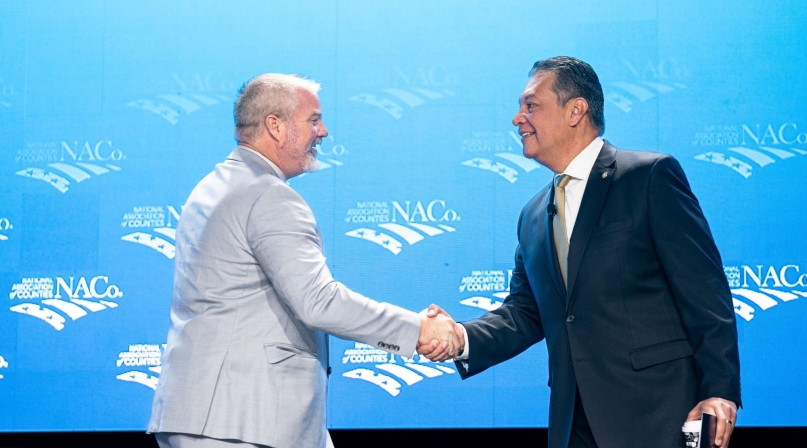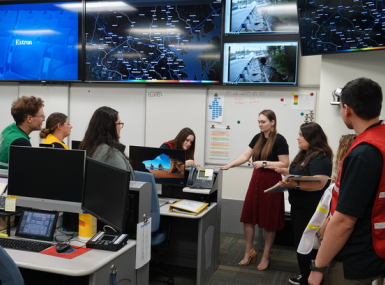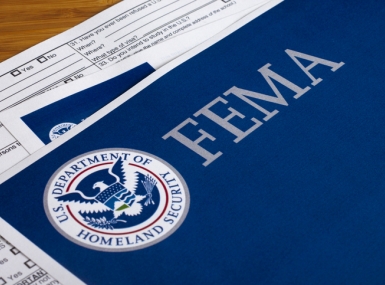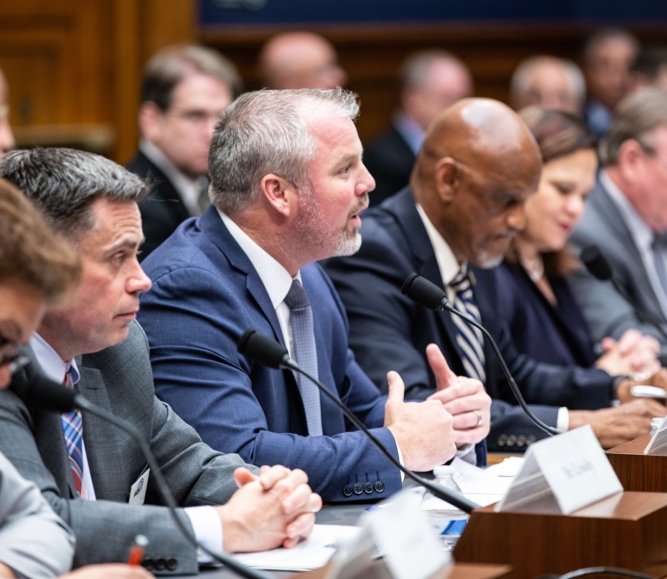Padilla calls for common sense bipartisanship to tackle disasters, mental health crisis

Key Takeaways
A common-sense approach is needed across all levels of government, political parties and geographic regions to address America’s “real and urgent” mental health crisis and its increasingly deadly disasters, U.S. Sen. Alex Padilla (D-Calif.) told members March 4, in a conversation with fellow Californian, NACo President James Gore, at a Legislative Conference General Session.
Padilla said when he worked for former U.S. Sen. Diane Feinstein in the 1990s, he traveled to multiple counties with James Lee Witt, the FEMA director at the time, to meet with local leaders and coordinate support. With wildfires increasingly becoming more extreme and frequent, that type of collaboration across agencies and all levels of government is more key than ever, Padilla said.
“Fires have only gotten worse,” Padilla noted. “They’ve only gotten bigger, they’ve only gotten more frequent — not just in California, but especially in California. So, we had a roundtable in Sonoma County, where we pulled representatives from seven counties together — fire chiefs, supervisors, other emergency personnel — with common-sense questions, ‘What’s worked? What hasn’t worked? What can we do better?’”
Out of those conversations came a number of ideas that evolved into the FIRE Act, which strengthened FEMA wildfire preparedness and response efforts, and was the first standalone bill of Padilla’s signed into law.
“It can still happen, bipartisan support for common-sense things going forward,” Padilla said. “Like, better pay and a full-time federal firefighting workforce — we need more of them, not less. We shouldn’t be laying them off or asking them to resign. We need to hire and train more now, so that we’re better prepared for the summer months.”
Padilla’s background as an engineer and city councilman shaped his “common sense” approach to public service, he said.
“Engineers are trained to solve problems, isn't that what policymakers are supposed to do?” Padilla said. “I know that’s why we’re all in this business, to solve problems and improve people’s lives.
“I was never a county official, but I have the perspective of what local officials deal with, how responsive we have to be for our constituents — there’s no time for messing around, everything we do impacts people’s daily lives.”
Cross-collaboration also leads to more innovative solutions, Padilla said. There is extensive wildfire expertise across different departments and agencies — all of that could be integrated into a wildfire continuum of knowledge, like the National Weather Service, to maximize preparedness, he said.
A lot of data and technology, including imaging and modeling, are underused when it could be leveraged to create a more informed and strategic approach to anticipating and responding to fires, he added.
Insurance affordability is becoming an issue for homeowners issue across the country, regardless of the type of disaster common in a location. Padilla noted the recent fires in Los Angeles County and hurricanes in the southeast, and said collaboration across political parties and geographic regions is essential to marking a path forward.
“While technically, that may be a challenge because ‘they’re different’ or ‘red state, blue state,’ we actually see an opening and an opportunity to work collaboratively on some of this stuff,” Padilla said. “It’s, ‘How do you buttress the market itself to make sure policies are available, actually affordable, actually meaningful and not in conflict with some of the public programs?’ So, we have to really look at how we do all of this.”
Each year, more firefighters and law enforcement die by suicide than in the line of duty, Padilla said. About a year and a half ago, NACo conducted a nationwide survey of the most pressing issues county officials are facing and while Gore disaster management or infrastructure to lead the results, mental health “cut across rural, urban, suburban, different landscapes, different parts of the country,” he said. Padilla, a co-founder of the first ever Bipartisan Senate Mental Health Caucus, said public officials must actively address, and work to destigmatize, the mental health crisis America is facing.
“Given our platforms, the more we talk and share stories publicly, the more we’re doing our part to undo stigma and increase awareness and understanding and give people license to share their experience,” Padilla said. “Because everybody's touched by it, directly or indirectly.”
The Bipartisan Safer Communities Act — which increased funding for mental health support, including crisis intervention programs and Mental Health Courts — was passed into law in 2022 following the elementary school mass shooting in Uvalde, Texas. Padilla said it’s important that the funding is spent responsibly, but also quickly, and that it continues to build on success stories of how it’s being implemented across different states.
“The biggest element of that bill was funding for mental health,” Padilla said. “And so, we want to make sure that the money isn't just approved and appropriated, but that it’s moved, because the need is real and it’s urgent.”
As the country makes strides in destigmatizing mental health issues and seeking help for them, the biggest thing moving forward is making sure there’s a strong workforce to meet that need, Padilla said.
“The more we encourage people to speak out, the more we encourage people, ‘If you need help, to get help,’ what are we doing on the public, on the government side?” Padilla said. “Federal, state and local officials are working together to make sure we're nurturing the next generation of psychologists, psychiatry, therapists, counselors, etc., to meet the need of people coming forward. We’ve got a lot of work to do.”
Related News

SBA issues new rule affecting local permitting in post-disaster rebuilding
The U.S. Small Business Administration (SBA) has issued an interim final rule that changes how rebuilding projects financed with SBA disaster loans following a Presidentially declared disaster interact with state and local permitting requirements.

Cross-training helps county 911 scale up for big emergencies
With training, Howard County, Md. staff help filter and respond to non-emergency requests for information and assistance during period of heavy 911 call volume.

States file lawsuit challenging FEMA’s new rules on emergency management grants
On November 4, a coalition of 12 states filed a lawsuit against the U.S. Department of Homeland Security (DHS) and the Federal Emergency Management Agency (FEMA), alleging that recent changes to key emergency management grants are unlawful and could disrupt state and local preparedness efforts.
Advocacy
California Supervisor tells Congress disaster reforms need to be implemented now

